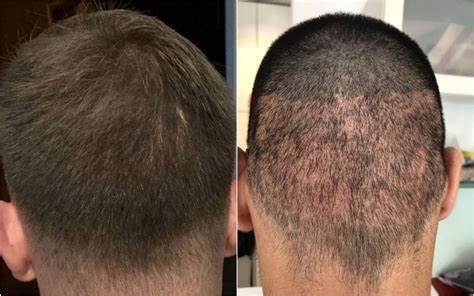Attention deficit hyperactivity disorder (ADHD) is a neurodevelopmental disorder that affects both children and adults. ADHD is characterized by symptoms of inattention, hyperactivity, and impulsivity, which can have a significant impact on a person’s life. ADHD is commonly treated with medication, such as stimulants, which can improve focus and attention. However, there have been concerns about the link between ADHD medication and motor coordination. In this article, we will explore the link between ADHD medication and motor coordination and discuss ways to address these concerns.
What is Motor Coordination?
Motor coordination refers to the ability to execute smooth, accurate, and efficient movements. Motor coordination is essential for performing daily activities, such as walking, running, and writing. Motor coordination involves various areas of the brain, including the cerebellum, which is responsible for balance and coordination, and the basal ganglia, which is responsible for initiating and controlling movement.
The Link Between ADHD Medication and Motor Coordination
Studies have shown that individuals with ADHD have deficits in motor coordination compared to individuals without ADHD. These deficits can manifest as problems with balance, coordination, and fine motor skills. These deficits in motor coordination have been linked to the underlying neurobiology of ADHD, including dysfunction in the cerebellum and basal ganglia.
ADHD medication, particularly stimulants, has been shown to improve focus and attention in individuals with ADHD. However, there have been concerns that these medications may have negative effects on motor coordination.
Stimulants and Motor Coordination
Stimulants are a common medication used to treat ADHD. Stimulants work by increasing the levels of dopamine and norepinephrine in the brain, which can improve focus and attention. However, these neurotransmitters also play a role in motor coordination.
Studies have shown that stimulants can have both positive and negative effects on motor coordination in individuals with ADHD. Some studies have shown that stimulants can improve motor coordination, particularly in tasks that require fine motor skills, such as handwriting. Other studies have shown that stimulants can have negative effects on motor coordination, particularly in tasks that require gross motor skills, such as balance and coordination.
The negative effects of stimulants on motor coordination may be due to their impact on the cerebellum and basal ganglia. Stimulants can alter the levels of neurotransmitters in these areas, which can affect motor coordination. Additionally, stimulants can cause side effects, such as tremors and restlessness, which can affect motor coordination.
Non-Stimulant Medications and Motor Coordination
Non-stimulant medications, such as atomoxetine and guanfacine, are also used to treat ADHD. These medications work by targeting different neurotransmitters than stimulants, such as norepinephrine and alpha-2A adrenergic receptors.
Studies have shown that non-stimulant medications may have less negative impact on motor coordination compared to stimulants. However, some studies have also shown that non-stimulant medications may have negative effects on motor coordination, particularly in tasks that require gross motor skills.
Addressing Concerns About ADHD Medication and Motor Coordination
Individuals with ADHD and their healthcare providers may have concerns about the potential negative effects of ADHD medication on motor coordination. However, there are several ways to address these concerns.
https://www.bonfire.com/store/buy-adderall-without-prescription–overnight/
https://www.bonfire.com/store/buy-adderall-no-prescription–overnight-ship/
https://www.bonfire.com/store/where-to-buy-adderall-online-with-cash-app/
https://www.bonfire.com/store/buy-adderall-without-prescription–fast-sell/
- Monitor Motor Coordination: Healthcare providers should monitor the motor coordination of individuals with ADHD who are taking medication. This can be done through physical examinations, such as measuring balance and coordination, and through subjective reports from the individual.
- Adjust Dosage: If negative effects on motor coordination are observed, healthcare providers can adjust the dosage of medication to find the optimal level that balances the benefits of improved focus and attention with the negative effects on motor coordination.
- Try Different Medications: If negative effects on motor coordination persist despite adjusting the dosage, healthcare providers may consider trying a different medication. Non-stimulant medications may be a better option for individuals who experience negative effects on motor coordination with stimulants.
- Incorporate Behavioral Interventions: Behavioral interventions, such as occupational therapy or physical therapy, can help improve motor coordination in individuals with ADHD. These interventions can be used in conjunction with medication to improve overall functioning.
- Lifestyle Changes: Individuals with ADHD can make lifestyle changes that may improve motor coordination. This includes regular exercise, healthy eating habits, and getting enough sleep. These lifestyle changes can also improve overall functioning and may reduce the need for medication.
Conclusion
ADHD medication, particularly stimulants, has been shown to improve focus and attention in individuals with ADHD. However, there have been concerns about the link between ADHD medication and motor coordination. Studies have shown that stimulants can have both positive and negative effects on motor coordination, while non-stimulant medications may have less negative impact on motor coordination. Healthcare providers can monitor motor coordination, adjust dosage, try different medications, incorporate behavioral interventions, and suggest lifestyle changes to address concerns about ADHD medication and motor coordination. It is important for individuals with ADHD to discuss these concerns with their healthcare provider and to work together to find the best treatment option for their individual needs.



